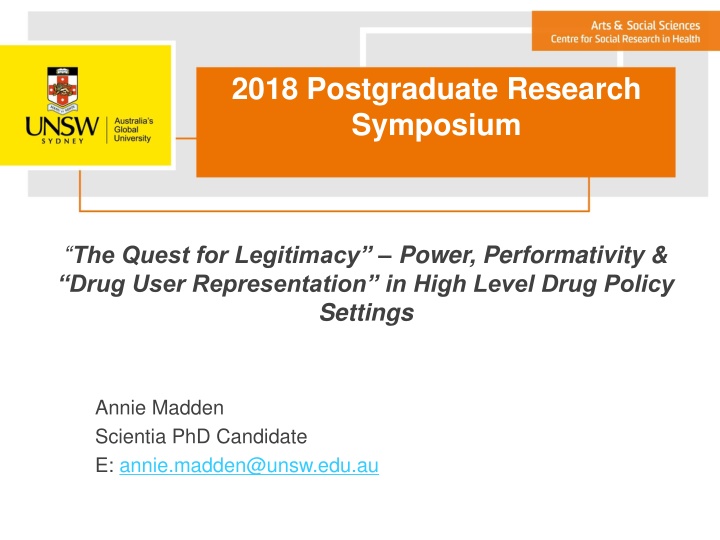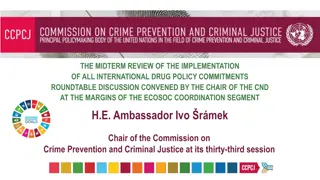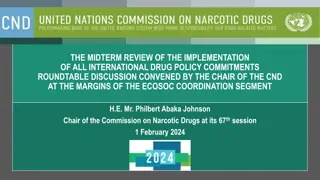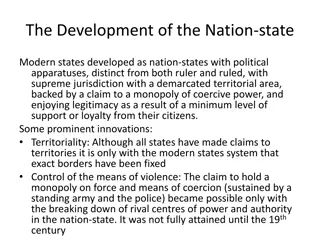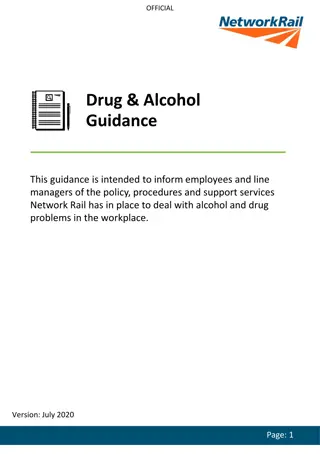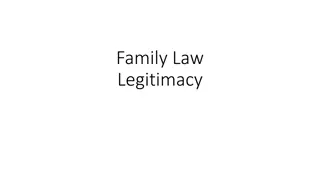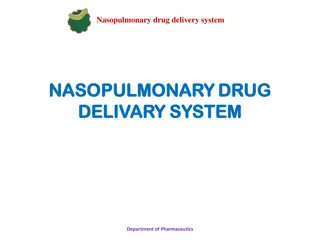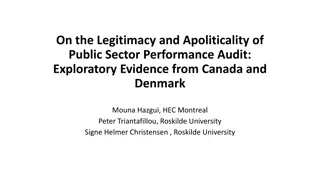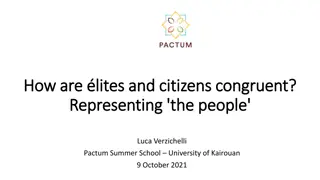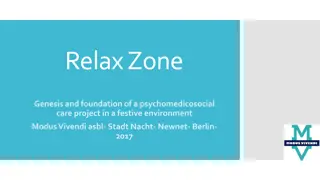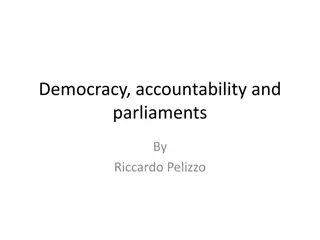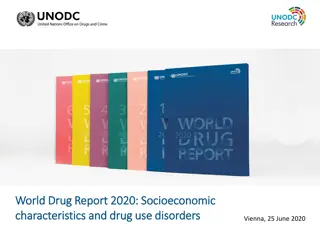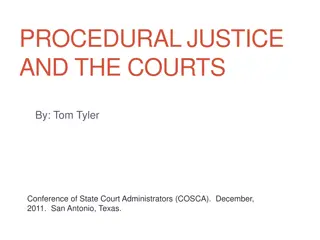The Quest for Legitimacy: Drug User Representation in High-Level Policy Settings
This research delves into the concept and practices of drug user representation in strategic drug policy contexts, shedding light on power dynamics, political subjectivities, and the impact on policy shaping. The study aims to contribute new knowledge, enhance engagement strategies, and amplify the voices of drug users in policy decisions affecting their lives.
Download Presentation

Please find below an Image/Link to download the presentation.
The content on the website is provided AS IS for your information and personal use only. It may not be sold, licensed, or shared on other websites without obtaining consent from the author.If you encounter any issues during the download, it is possible that the publisher has removed the file from their server.
You are allowed to download the files provided on this website for personal or commercial use, subject to the condition that they are used lawfully. All files are the property of their respective owners.
The content on the website is provided AS IS for your information and personal use only. It may not be sold, licensed, or shared on other websites without obtaining consent from the author.
E N D
Presentation Transcript
2018 Postgraduate Research Symposium The Quest for Legitimacy Power, Performativity & Drug User Representation in High Level Drug Policy Settings Annie Madden Scientia PhD Candidate E: annie.madden@unsw.edu.au
Research Topic This research will explore the concept and practice of drug user representation in high level drug policy settings. High level is - drug policy contexts where strategic-level decision making occurs or can occur (Aust & internationally). Includes - parliamentary drug summits and inquiries, ministerial- level advisory structures and UN commissions and sessions. Will take up both epistemological questions re: nature of knowledge & evidence in drug policy context there is other critical scholarship in this space. And, raise ontopolitical concerns about being and doing drug user representation, the emergent political subjectivities shaped by these processes and power relations that produce them esp. context of war on drugs policy approach.
Research Aims To make a scholarly contribution to our understanding of both the theoretical underpinnings and the practice of drug user representation in high-level drug policy settings; Potentially contribute to the development of new knowledge and new modes of engagement and practice; and To give voice to that which is too often silent the subjective experiences of people who use drugs in their efforts to shape and influence the policies that directly affect their lives and health.
Background to Research Topic Personal and professional interest in topic and understanding of the need for further research; Despite Australia s leadership in DUO, increasing focus over past 10 years on the wider human rights issues and importance of peer engagement there has been little critical scholarship in this area; Past 10 years - growth in research re: consumer participation in drug treatment settings and other health service contexts (linked to broader consumer health) but focus on service planning & delivery NOT drug user representation high level policy settings; 1 international systematic literature review on Engagement of PWUD in Policy Development cited major gaps in the current evidence base and that much of the work of DUOs remains untold . More recently new sub-field of drug policy research has emerged - questioning the substantive assumptions that underpin much of the current thinking in relation to drugs policy incl. post-structuralist critiques.
Key Research Questions Q.1 What is drug user representation ? Q.2 How is drug user representation understood and experienced by key stakeholders in high level drug policy settings?
Study Design & Methodology 4-year multi-stage qualitative research study. Stage 1: Mapping Formative scoping phase of study; Desk-based review of publicly available data/descriptive analysis with a focus on research question 1. Stage 2: Data Collection & Analysis Qualitative, semi-structured in-depth interviews n= 40-60; Focus on research questions 1 & 2. Stage 3: Iterative Design Further exploration of drug user representation in specific high level drug policy contexts in light data/possible trial new mode.
Acknowledgements Supervisors: Professor Carla Treloar - CSRH Professor Alison Ritter -SPRC Dr. Kari Lancaster CSRH Funding: This Scientia PhD project is funded by the Australian Government Department of Health and UNSW.
